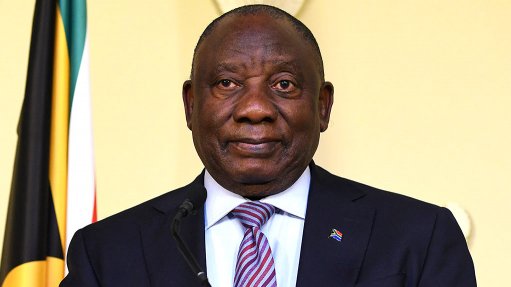Author’s frustrations blind him to Sanral’s ‘beacon of excellence’ status
By: Andrew Marsay
Wayne Duvenage’s book, The E-toll Saga, could well be dubbed Wayne Duvenage the Middle Man– standing bravely between a corrupt government and a too-long-suffering public.
Duvenage has acted as the agent who has channelled the various shades of discontent across the socioeconomic spectrum into distrust for the South African Roads Agency Limited (Sanral) and its e-toll project. This is ironic because, internationally, Sanral is viewed as a beacon of technical excellence and procurement efficiency and probity amid generally declining standards of public services in this country. Professional visitors come from highways agencies far and wide, including many Western countries, to view and celebrate Sanral’s achievements. Our own auditor-general’s reports give Sanral one of the few regular clean bills of health among government departments and agencies. Yet Duvenage has succeeded in making many people in this country see Sanral as the epitome of greed and incompetence.
A less celebrated reason for calling Duvenage the Middle Man is that, although he has been courageous and dogged in pursuing his legal and civic battles, his book focuses mainly on the relatively short period, between about 2007 and the end of 2013, during which the Gauteng Freeway Improvement Project (GFIP) was implemented as a tolled network. The book focuses on this period from the perspective first of how it impacted on his business – he was the CEO of car rental giant Avis – and then society, generally. The beginning of the saga – how South Africa came to the decision to fund the GFIP using e-tolling – and the end of the saga, embodied in the findings of the 2014 Gauteng E-Toll Review Panel, are reported selectively (the Gauteng review report) or ignored completely (the policy and legislative context of e-tolling).
The ‘beginning’ that is conspicuously missing from The E-toll Saga is the policy and legislative framework within which tolling was conceived in the early years after the first new-dispensation elections in 1994. This policy states that, in the context of limited resources, infrastructure should be paid for by users whenever there is a clear alignment between payers and beneficiaries. This policy was elaborated in the National Land Transport Transition Act of 2000 (now the Land Transport Act of 2009) to indicate that the method of paying for infrastructure should reflect social development priorities. In the case of urban freeway infrastructure, this means that roads should be funded in a way that benefits attempts to improve public transport. Keeping metropolitan freeways ‘free at the point of use’ accelerates migration away from public transport and effectively pulls the rug from underneath what is currently the biggest programme of public transport spending in South Africa’s history.
Duvenage reports his campaign only with reference to his interactions with an admittedly sometimes obtuse Sanral, but not realising that, from Sanral’s perspective, he was seeking to overthrow the whole framework of national transport policy and legislation.
The ‘end’ of the saga, which the book also fails to mention, is that, in the most comprehensive review of e-tolling, the Gauteng Review Panel, while Sanral and government generally are taken to task for not taking public opinion seriously, a table is published comparing e-tolling with five packages of alternative funding proposals that Duvenage and others have said should be used for highway funding. The table shows that, in terms of their impact on low-income groups, all alternative funding packages perform worse than e-tolling alone, and all other methods of funding result in more rapidly worsening congestion on the network than in the case of (compliant) e-tolling.
In addition, there are huge gaps in the ‘middle’ of Duvenage’s story. His starting point was his anger that Sanral was insensitive to the impacts of tolling on the invoicing procedures of the car rental industry. He points to the scheme’s cumbersome administrative arrangements and points to failed schemes in some other countries as evidence that the system was doomed to fail from the outset.
Yet he does not mention that his own former company, Avis, is at the forefront of assisting its customers to cope with the hugely complex procedures needed to cope with the plethora of different e-tolling schemes across some 27 states in the US.
His account of the legal challenges to e-tolling make for fascinating reading, even though the Opposition to Urban Tolling Alliance (Outa) lost in five legal challenges (with one successful interdict being overthrown on appeal). Duvenage’s take on this is that, in each ruling, the merits of Outa’s case were not adequately considered, implying that all five judges were bent by Sanral and government pressure.
His strongest technical argument against e-tolling, that the system costs are irrationally high, compared with toll revenues, takes no note of the fact that tolling is ‘buying’ the propublic transport socioeconomic benefits embodied in national transport legislation as well as free-flowing traffic. There is no mention of the cost-benefit studies that found that these and other economic benefits outweigh costs by a factor of 8:1.
Duvenage rightly expresses concern at collusion among contractors for the GFIP and at the very high prices of the construction contracts. What he fails to mention is that the GFIP was procured at the height of the greatest construction boom in the country’s history – during which the 2010 soccer World Cup stadiums, the Gautrain network and other World Cup transport infrastructure were also constructed. The very high demand explains the very high GFIP construction prices (without excusing the collusion).
The book concludes with Duvenage committing himself and Outa to sustaining the programme of civil disobedience that has seriously disabled the e-tolling venture.
Taken without all the proper context, of which most readers will be unaware, his book is a compelling read and does show Duvenage to be a brave and sensitive human being. But the ironic bottom line is that his legitimate frustrations with general corruption levels in South Africa have blinded him to the fact that what he has been criticising is one of the very few exceptions to the general decline in standards of competence and probity in public service.
Marsay is a transport economist with 35 year's experience in transport infrastructure policy, planning and funding issues - marsay@mweb.co.za
Comments
Announcements
What's On
Subscribe to improve your user experience...
Option 1 (equivalent of R125 a month):
Receive a weekly copy of Creamer Media's Engineering News & Mining Weekly magazine
(print copy for those in South Africa and e-magazine for those outside of South Africa)
Receive daily email newsletters
Access to full search results
Access archive of magazine back copies
Access to Projects in Progress
Access to ONE Research Report of your choice in PDF format
Option 2 (equivalent of R375 a month):
All benefits from Option 1
PLUS
Access to Creamer Media's Research Channel Africa for ALL Research Reports, in PDF format, on various industrial and mining sectors
including Electricity; Water; Energy Transition; Hydrogen; Roads, Rail and Ports; Coal; Gold; Platinum; Battery Metals; etc.
Already a subscriber?
Forgotten your password?
Receive weekly copy of Creamer Media's Engineering News & Mining Weekly magazine (print copy for those in South Africa and e-magazine for those outside of South Africa)
➕
Recieve daily email newsletters
➕
Access to full search results
➕
Access archive of magazine back copies
➕
Access to Projects in Progress
➕
Access to ONE Research Report of your choice in PDF format
RESEARCH CHANNEL AFRICA
R4500 (equivalent of R375 a month)
SUBSCRIBEAll benefits from Option 1
➕
Access to Creamer Media's Research Channel Africa for ALL Research Reports on various industrial and mining sectors, in PDF format, including on:
Electricity
➕
Water
➕
Energy Transition
➕
Hydrogen
➕
Roads, Rail and Ports
➕
Coal
➕
Gold
➕
Platinum
➕
Battery Metals
➕
etc.
Receive all benefits from Option 1 or Option 2 delivered to numerous people at your company
➕
Multiple User names and Passwords for simultaneous log-ins
➕
Intranet integration access to all in your organisation


















